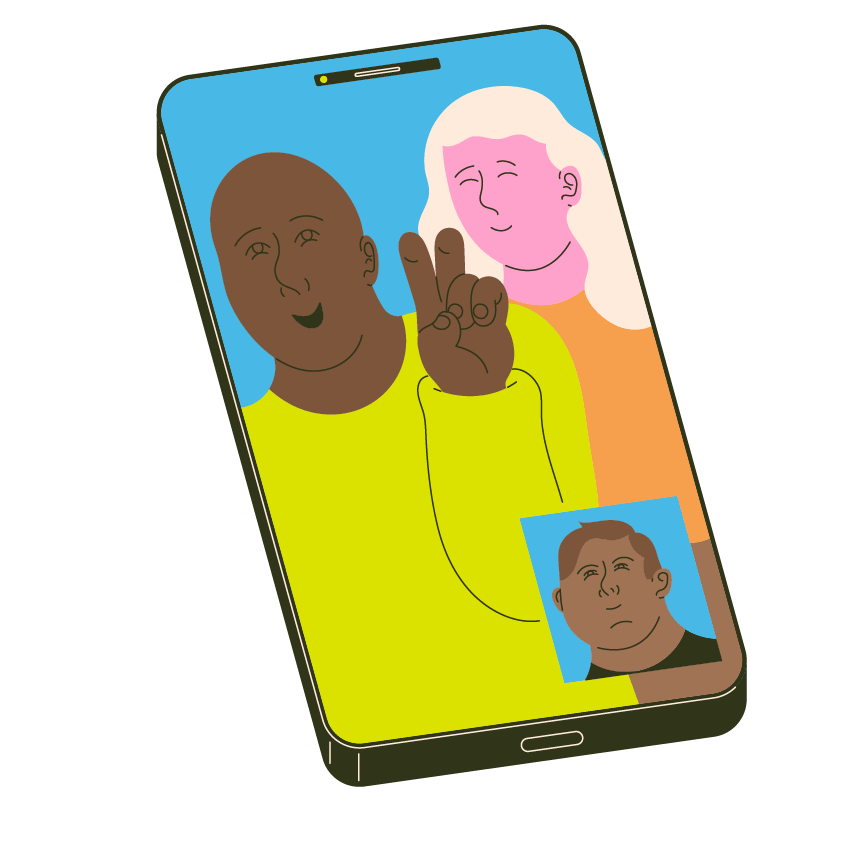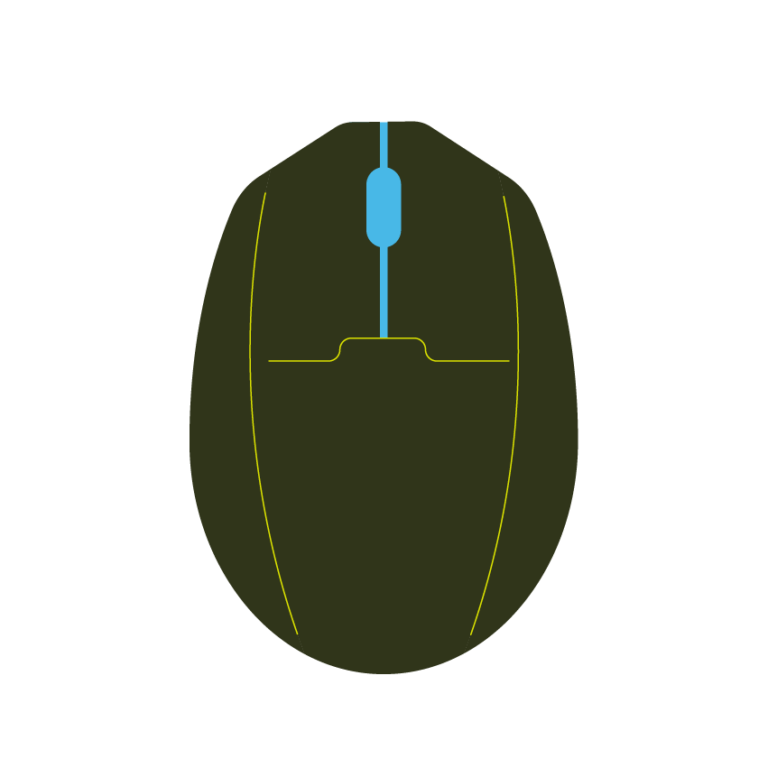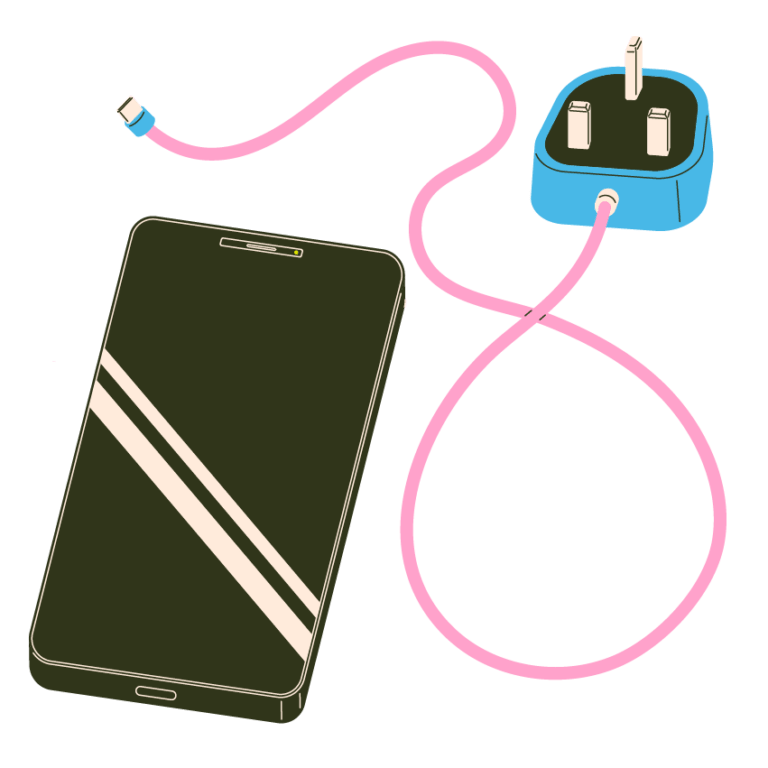With this project we wanted to increase the connectivity of recently arrived people in Glasgow. This starts with the distribution of devices and data but expands into refugee-led tech support and repair spaces. This project planned on building on to our existing distribution model to cover a wider geographical area and reach more people.
Refuweegee (Staying Connected)


Key Information
Our project aims were to:
- Work with partner organisations to identify those most need in devices/at risk of digital exclusion. This would then help prevent isolation and improve mental wellbeing, ownership and increase social interactions.
- Work with refugees to decide on the design of the tech support drop-in/online space
- Set up bi-weekly drop-in technical support cafe/walk-in for refugees
- Work with refugees to decide which further digital activities they would like to develop
Key Information
Geographical reach
East Dunbartonshire; East Renfrewshire; Glasgow; North Lanarkshire; Renfrewshire; South Lanarkshire
Dates
25/10/2021 – 30/05/2022
Project Type
Spreading good practice
Background
We have been distributing mobile phones and laptops to refugees for over four years now and the demand has only ever increased. Since COVID-19 and government guidelines resulting in almost all educational and social activities going online the demand has increased ten-fold.
We receive requests for devices from all organisation in Glasgow who work in this field, from asylum health teams to Mears Group, there is no denying that digital inclusion and accessibility is a huge issue for the refugee community in and around Glasgow.
Our small team receive daily requests for technical support with devices, including SIM card selection and set-up to screen repair. Volunteers from both old and new Scots communities offer support in this area on an ad-hoc basis but we recognise that the demand is higher than that which we currently provide.
This funding will allow us to not only expand that provision but to do so with a refugee-led that will increase ownership and potentially grow into a larger, self-managing project.
Involvement of New Scots in project
Refuweegee has well-established relationships and high degrees of trust in the refugee community. This meant it was easy for us involve and engage people and bring them into the project.
Impact
This project cemented our belief that the most effective way of supporting people is through peer-to-peer support. Nobody understands the frustrations, struggles and challenges of the recently arrived community better than another recently arrived person.
There is a constant optic through which we consider our work and that is one of being white and privileged, helping people of colour in extreme disadvantage. It is much more preferrable to create opportunities for people to help each other.
We will take this approach through all our future programmes. As well as the implicit imbalance of privilege, being helped by somebody who speaks your own language is significantly easier.
This creates an environment which feels much more positive: an atmosphere that is immediate easy and theirs to own.
We will continue to distribute devices but on a smaller and slower scale as we now depend on donated items and need to make sure these are reconditioned and fit-for-purpose.

Challenges encountered
There were no significant challenges to the programme. There were however three notable issues, which we anticipated:
- Technical donations being sub standard and of poor quality.
- Meeting people’s expectations of what tech and devices they could expect
- Managing and meeting the demand
Technical donations being sub-standard and of poor quality. As an organisation which survives upon donations, we regularly receive items that are broken or in poor condition. We were mindful that some of the donated tech items might not be in working order and this proved to be the case. Donations of sub-standard tablets and laptops meant our volunteers spent much longer clearing and updating these devices so that they could be given to people.
Meeting people’s expectations of what tech and devices they could expect when the best kit ran out (new phones and tablets), we gave out reconditioned devices. Sometimes we faced disappointment and annoyance from some who had either seen or heard of us giving better quality items out. Again, as an organisation which distributes donated items, we anticipated some recipients might ask for brand new, higher spec items. This disappointment was managed by the staff team who explained the process (of first come, first served).
Managing and meeting the demand – Now the project is over, there is the challenge of either funding alternative funding to run the project again as people have heard we used to provide devices and expect this to be on permanent offer.
Reflections
Learning
- Running a public campaign asking for people to donate old devices worked really well and made a huge impact in terms of the numbers of devices we were able to distribute.
- Elongating the offer from a bi-weekly café to a permanent offer was key. No-one was turned away and there was always someone on hand to help, whether that was a volunteer or a staff member.
- Creating the next opportunity/opportunities for new (male) volunteers was really important to keep these people connected and maintain their sense of value.
- Discovering about different mobile models was a massive learning moment for us. We now know which models are harder to update, which have difficult software and which are most robust.
Recommendations
- Research options thoroughly– don’t use funding to buy data immediately – had we spent the funds quickly, we would have missed incredible deals.
- Use all your networks to find deals. A huge amount of providers have ESG targets and they need charities to fulfil their objectives.
- Manage expectations by making clear guidelines of how new stock and reconditioned stock is distributed.
- Be cautious about the condition of donated devices: some
- Always ask for chargers with donated devices. This is really important – a lot of donations had no charger which meant the tech solution was incomplete.
What We’d Do Differently
• We would promote the end date of the project, from the outset. We are now in a situation where people expect devices from us and are very disappointed when we say that the old project is now complete, and they are faced with a long wait until a desired and comparable device is donated. We now run a waiting list of people looking for tech items and continue to source items to help people stay connected.
In the future we might be forced to do data differently if/when Vodafone’s charitable data scheme runs out. A huge amount of time was spent researching data options before we discovered the Vodafone scheme.
The possibility of returning to researching economic data options and the different scalable costs is not appealing: buying in bulk means data becomes much cheaper but data purchases begin immediately meaning there would be incredible pressure to distribute data as soon as possible.
Contact
Email:
selina@refuweegee.co.uk


